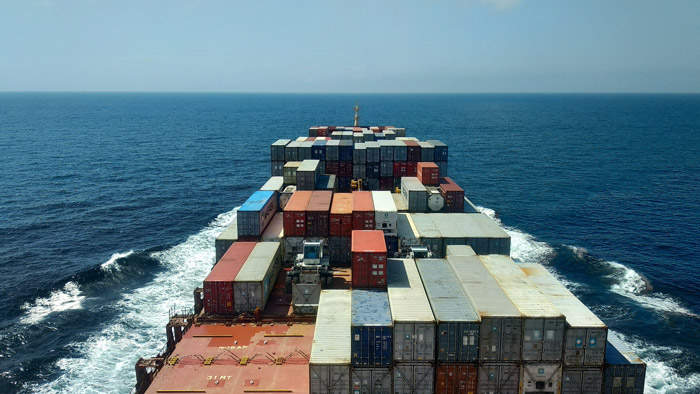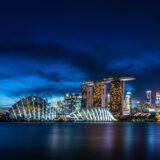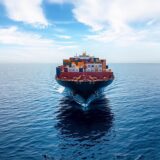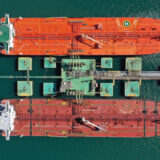
IMO and Singapore propose new shipping decarbonisation concept
A new concept for a collaborative global ecosystem of maritime transport decarbonisation initiatives has been introduced by the International Maritime Organization (IMO) and Singapore, during a global webinar on decarbonisation on September 17.
The NextGEN initiative aims to facilitate information sharing on decarbonisation initiatives across many stakeholders (including IMO member states, NGOs, industry and academia); identify opportunities and gaps for decarbonisation in the global shipping community; and create important networks and platforms for collaboration across these initiatives. This network initiative has been named “NextGEN”, where GEN is short for “Green and Efficient Navigation.”
The webinar, attended by more than 500 maritime leaders and professionals, from 63 countries, was jointly organised by IMO and the Maritime and Port Authority of Singapore.
During the webinar, IMO Secretary-General Kitack Lim recognised the unprecedented times in which we are living and expressed his belief that “the single biggest challenge we are still facing is the battle against global warming and climate change.” He called for more action to speed up research into zero carbon marine fuels.
“To achieve this, IMO is stepping up its efforts to act as a global forum and promoter in R&D in zero carbon marine fuels, bringing together interested stakeholders from public and private sectors, and also private and development banks and other potential donors around the world,” Lim said.
Singapore’s Minister for Transport, Ong Ye Kung, said the world needed to keep up the fight against climate change, even while dealing with the COVID-19 crisis. “No one can do this alone. It is a global ambition, to be accomplished by the international maritime community. But we all have capabilities, expertise, and resources to contribute to this endeavour. Singapore will do our part, and we look forward to the maritime community coming together, under the leadership of the IMO, to redouble our efforts and build a better, greener world,” Ong said.
Outlining the principal features of the NextGEN concept, Jose Matheickal, chief of the Department of Partnerships and projects of IMO, said further discussions were envisaged at the forthcoming Future of Shipping Conference in Singapore in February 2021. Dedicated NextGEN workshops in 2021 will be organised by IMO and supported by Singapore, to bring together various decarbonisation initiatives, in order to map out in detail the global shipping decarbonisation web.
A subsequent global mapping document will inform a wider audience through relevant IMO meetings. It is envisaged that NextGEN will act as a catalyst to spur collaboration among the various initiatives once the NextGEN collaboration platform is fully developed by 2022-2023.
Other speakers at the webinar gave presentations spanning the entire spectrum of various existing cooperation-frameworks on decarbonisation, ranging from initiatives in the Pacific to actions led by the maritime industry and financial institutions.
Panel discussions provided an opportunity to share views on additional opportunities for cooperation and outlining potential next steps to support achieving the 2050 level of ambition of reducing GHG emissions from international shipping by at least half compared to 2008, as set out in the IMO GHG Strategy.
To watch the webinar, click https://fos-decarbonisation2020.sg/
Future of shipping: Digitalisation
The second IMO-Singapore webinar – “Future of Shipping: Digitalisation” – will be held online on 8 October 2020 from 10 a.m – 12 a.m (BSM, GMT+1). It will hear presentations on the potential that digitalisation offers to make the maritime supply chain more resilient even in the face of new demands, and also discuss how to overcome challenges faced by maritime administrations and the industry on their digitalisation voyage.












